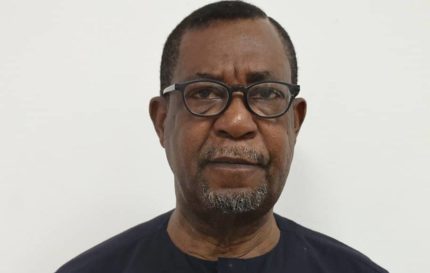The Economic and Financial Crimes Commission (EFCC) has intensified its legal battle against former Minister of Power, Olu Agunloye, with the introduction of amendments to the seven-count charge previously filed. The new amendments, presented in the Federal Capital Territory (FCT) High Court in Apo, Abuja, not only reinforce the EFCC’s case but also add substantial new evidence to support the prosecution’s claims. Agunloye faces allegations of official corruption linked to the Mambilla Power Project, a deal valued at an estimated $6 billion, raising serious concerns about governance and financial accountability in Nigeria’s public sector.
The EFCC’s move to amend charges follows a significant procedural strategy intended to solidify the case against Agunloye. During the latest court session, EFCC’s counsel, Abba Muhammad, SAN, highlighted the necessity of the updated charges to Justice Jude Onwuegbuzie, the presiding judge, and requested that Agunloye be allowed to respond to the amended allegations. However, the defense raised objections, setting the stage for a complex legal confrontation that underscores the high stakes in the ongoing investigation.
Contentious Proceedings Over Amended Charges
The prosecution’s decision to amend the charges mid-trial sparked contention with Agunloye’s defense counsel, Adeola Adedipe, SAN, who argued that the proceedings should focus on cross-examining the EFCC’s second prosecution witness, Adewale Agunbiade, as previously scheduled. Adedipe objected to the EFCC’s amendment request, asserting that it disrupted the trial’s planned sequence and required a formal application to proceed.
In response, the EFCC’s lead counsel cited Sections 216(1) and (2) of the Administration of Criminal Justice Act (ACJA), which authorizes prosecutors to modify charges at any point before judgment. This statute was presented as legal grounds for the amendments, demonstrating the EFCC’s strategic use of legislative provisions to strengthen their case. Nonetheless, the defense countered with a call for formal court approval per Section 218(2) of the same ACJA, arguing that procedural integrity must be upheld in light of the amended charges.
Court Ruling and Adjournment
Following an extensive review of arguments from both sides, Justice Onwuegbuzie ruled that the EFCC must submit a formal application for the amendments, allowing the defense an opportunity to respond. The court adjourned the case until November 11, 2024, marking the next phase of the high-stakes legal confrontation. This ruling emphasizes the judiciary’s commitment to procedural fairness, reflecting an approach that balances prosecutorial flexibility with the defendant’s rights.
The scheduled adjournment grants the EFCC additional time to gather evidence and address procedural issues raised by the defense, potentially enhancing the prosecution’s case. Justice Onwuegbuzie’s ruling underscores the judiciary’s role in maintaining a fair trial process amidst serious allegations involving former government officials.
Public Interest and the Fight Against Corruption by EFCC
This case has drawn significant public interest as it involves one of Nigeria’s most ambitious infrastructure projects—the Mambilla Power Project—and highlights the broader issue of corruption in the nation’s development initiatives. The EFCC, Nigeria’s foremost anti-corruption agency, has intensified its efforts to ensure transparency in high-profile cases, urging citizens to remain vigilant against corrupt practices and support anti-corruption measures that promote Nigeria’s progress.
Public advocacy groups and citizens alike are calling on the EFCC to maintain its vigilance, especially with growing concerns about potential cover-ups in similar cases. There is a renewed call for transparency and educational campaigns on the dangers of corruption to Nigeria’s development. Observers emphasize that corruption deters international investment and hampers sustainable growth, underscoring the importance of strong, transparent legal frameworks in safeguarding Nigeria’s future.
Table of Contents
Discover more from OGM News NG
Subscribe to get the latest posts sent to your email.














